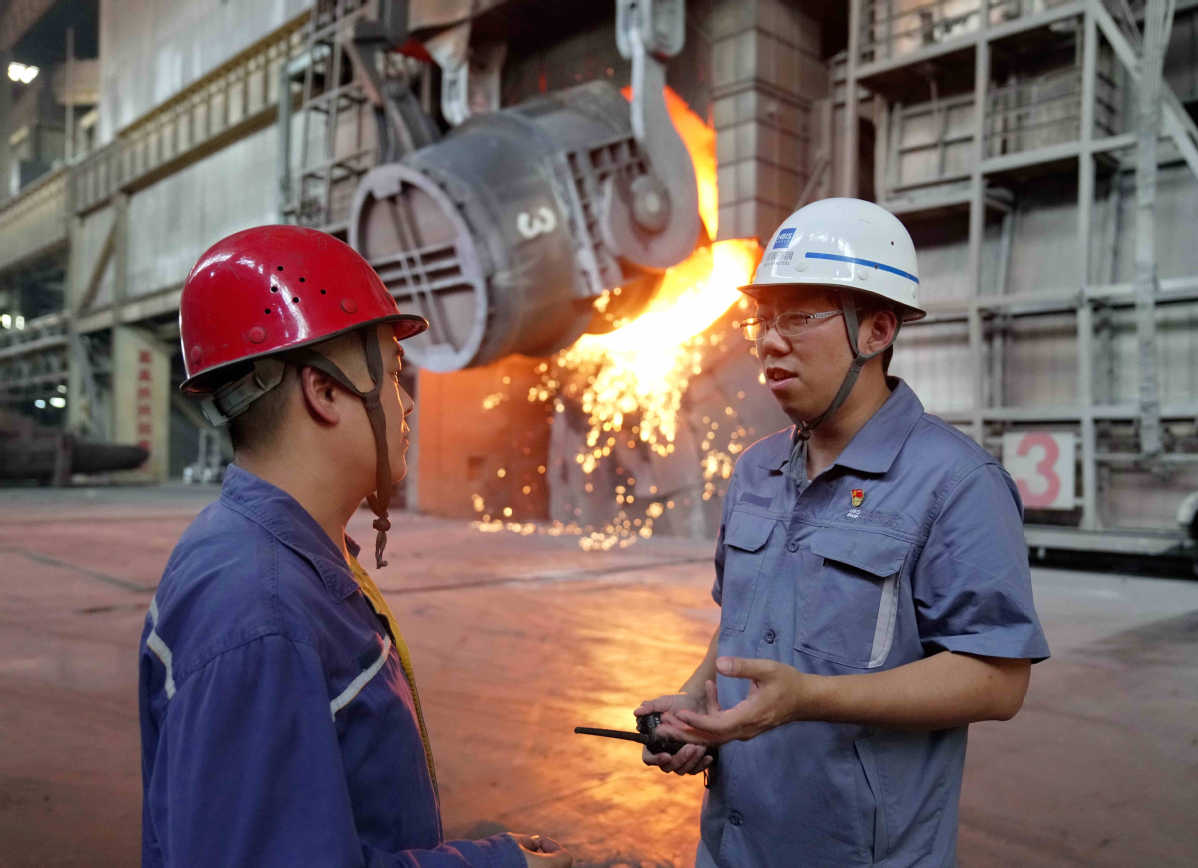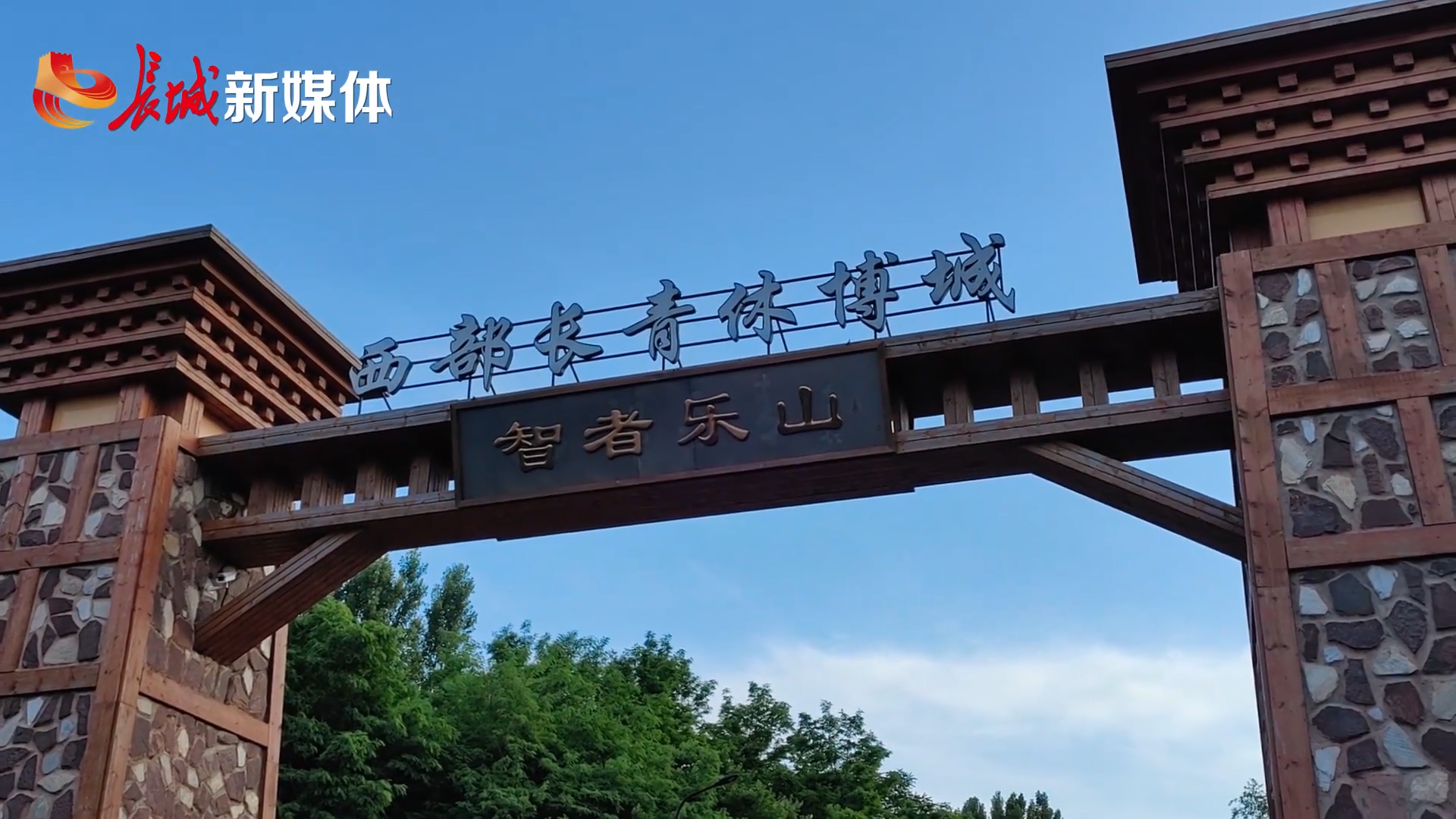
Tang Xiaoyu (right) talks with a worker at Hansteel, a manufacturer affiliated with Hebei Iron and Steel Group Co, at the worksite in Handan, Hebei province, on Sept 7. Tang has come up with ideas that improved procedures at the steelworks. YANG SHIYAO/XINHUA
Tang Xiaoyu, a steelworker in Handan, Hebei province, has persisted in his search for better steelmaking procedures during the past 14 years.
After graduating from the University of Science and Technology Beijing with a major in metallurgical engineering in 2008, Tang, who is now 37, went to Handan, a city about 400 kilometers southwest of Beijing, rather than staying in the capital or going back home to Benxi, Liaoning province. He said that Handan has what he wants.
He chose to become an ordinary worker — loading materials into a stock bin, which is among the most basic work at a steelmaking workshop — at a mill of Hansteel, a steel manufacturer affiliated with Hebei Iron and Steel Group Co, one of the world's largest steelmakers.
"Back in college, teachers taught us to go to work on the production line. Only in this way can we better combine what we had learned with practice," he said, adding that he had believed he could make a difference one day with his work at the grassroots level.
In the following two years or so, he was promoted three times, each time to a more complex post, and became head of a converter workshop. He was responsible for the operation of a steelmaking converter and also the management of product quality and safety. Converter steelmaking, the main step in ore-based steel production, uses hot metal and steel scrap as raw materials.
He was then the plant's youngest head of the converter process and was promoted to the position in the shortest time. "Normally it would need about six or seven years," Tang said.
After that promotion, he began to innovate steelmaking procedures to help the company reduce costs and improve product quality.
In 2011, he initiated a slag-retention method for the converter smelting process, which improved the quality of molten steel while reducing the cost. Slag is the waste matter separated from metals during the refining of ore.
"Many doubts were raised in the beginning about the new method, because it could easily lead to the splash of molten steel and thus cause production accidents," Tang said.
"To erase the doubts, I need to make qualified molten steel with the method without any accidents," he said.
He then consulted related documents and experts, and recorded and analyzed daily production data.
Based on the accumulated experience, he adjusted some steps in the process.
He succeeded in producing qualified molten steel using the method, and the converter he was responsible for was able to save more than 15 million yuan ($2.1 million) per year in production costs.
In the next two years, Tang continued to analyze data and further improved the process in 2013 with another new method.
Due to his accomplishments, Tang became well known for technological innovation at the plant in Handan.
On behalf of his company, he attended an international competition, a simulated steelmaking challenge, in 2018 and finished as champion among over 1,500 competitors from more than 50 countries and regions.
"I will not stop on the path of innovation, because there are too many things to do," he said.
Dai Hongxing, an apprentice who has worked with Tang since 2015, said, "He is always like this, taking great pains to innovate".
Dai added that Tang is also generous in sharing his experience in steelmaking with his colleagues.
As a delegate to the upcoming 20th National Congress of the Communist Party of China, Tang said he would be sure to share the spirit of the Congress with colleagues after his return.
"It's a significant moment for our country, and being able to attend the meeting is a great honor," he said.
Editor: Zheng Bai






